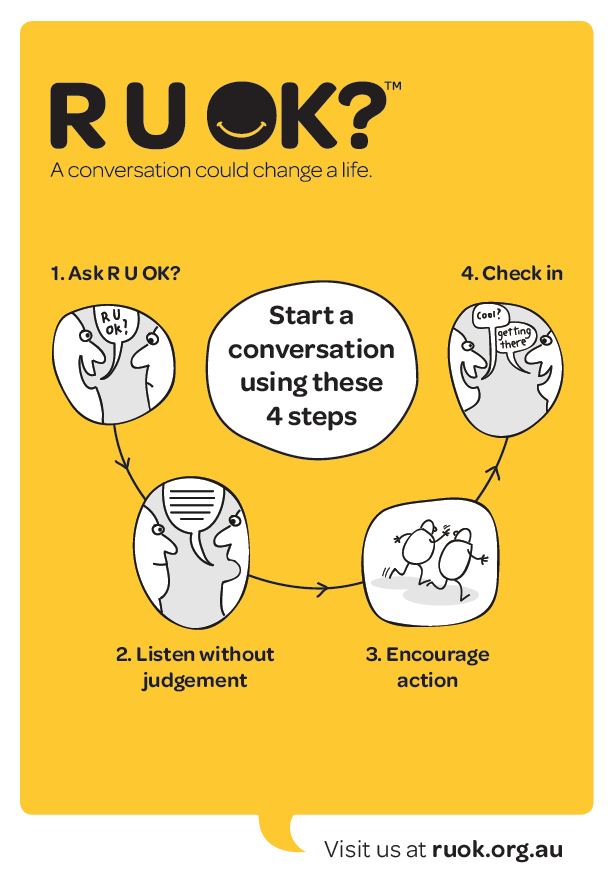“We know that it can be really hard to talk to staff about mental health and how to actually look after one another’s health and well-being.”
In a recent interview, Rebecca Lewis, campaign director of R U OK? Day, told
HC about how this nationwide event could help encourage difficult conversations amongst staff.
R U OK? Day, which will be held on 8 September, is a powerful entry point to talk about mental health and other issues with colleagues, she said.
“If you’re an organisation which doesn’t know how to start the conversation with staff about the importance of well-being and an individual sense of connection and belonging, R U OK is the perfect starting point.”
To get people on board with the program, there are three critical ingredients for organisations to include, Lewis said.
“The first is to mobilise legitimate supporters. You need someone within the executive team – someone who people take note of – to endorse the message.
“What’s critically important is that person is a genuine advocate of mental health and well-being. If you kind of have someone who’s less interested in that, it probably won’t resonate as strongly.”
Second, it is important to inspire people to start the conversation instead of simply telling them to talk, she said.
“What really helps is to show people the way – to lead by example and to celebrate great mates and great colleagues who are doing just that.”
This may be someone on the executive team or simply a staff member who is willing to share their insights about moments they benefited from these conversations.
“It makes the behaviour that much more relatable and it makes it relevant to the workplace as well.”
Finally, employers should also create opportunities for staff to actually connect and have these conversations, Lewis said.
“Give staff that opportunity whether that’s creating a conversation café, hosting an event for staff or even giving people an extra 30 minutes at lunch to call someone that they haven’t spoken to in a while.”
By doing this, HR will bring about a great deal of benefits to both the individual and the business.
“R U OK contributes to an individual’s sense of well-being which directly impacts on their work and their ability to embrace workplace challenges. This in turn flows on to the viability of the company.”
So while it is a gradual flow on effect, the act of championing regular conversations between peers on a regular basis can translate into a better company culture, Lewis said.
 Related stories:
Communication, flexibility key to handling psychological injury among employees
Three steps to a mentally healthy workplace
Three mental traps that can drastically limit performance
Related stories:
Communication, flexibility key to handling psychological injury among employees
Three steps to a mentally healthy workplace
Three mental traps that can drastically limit performance

